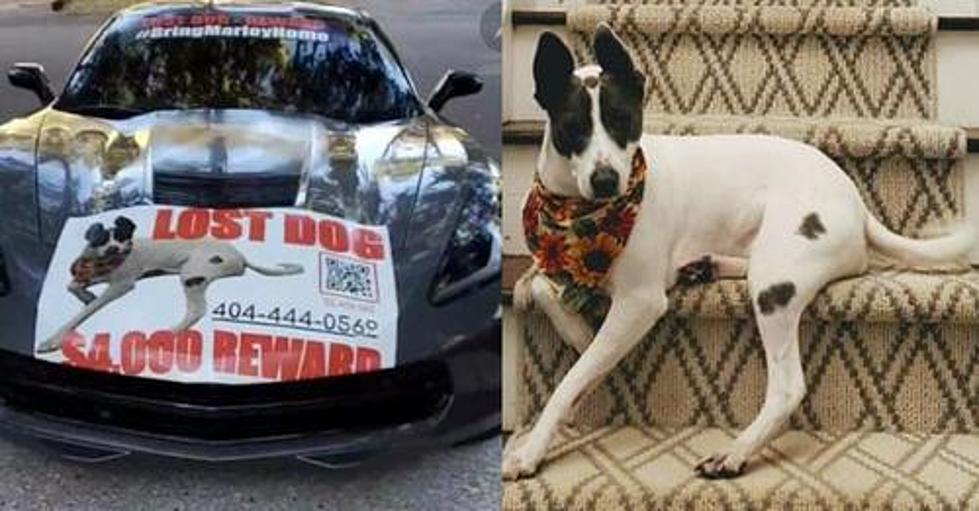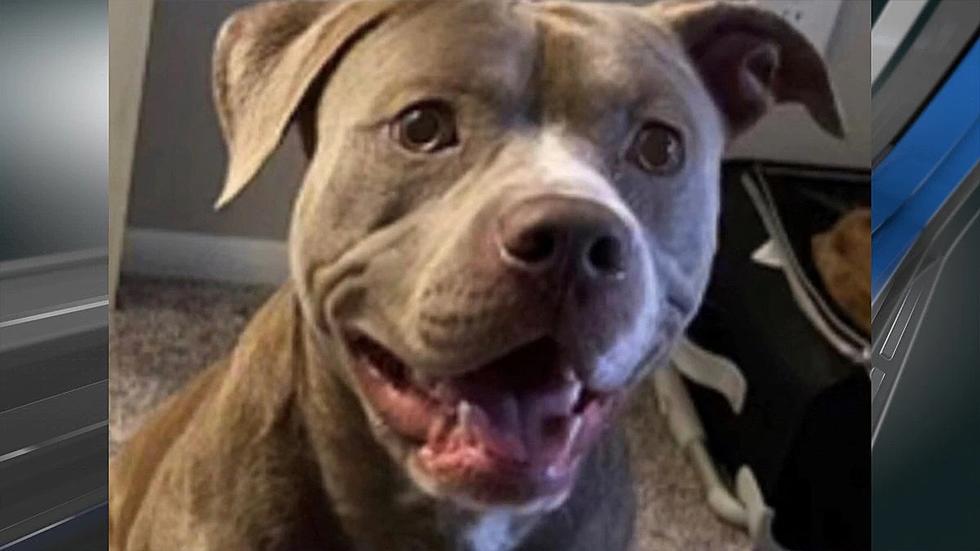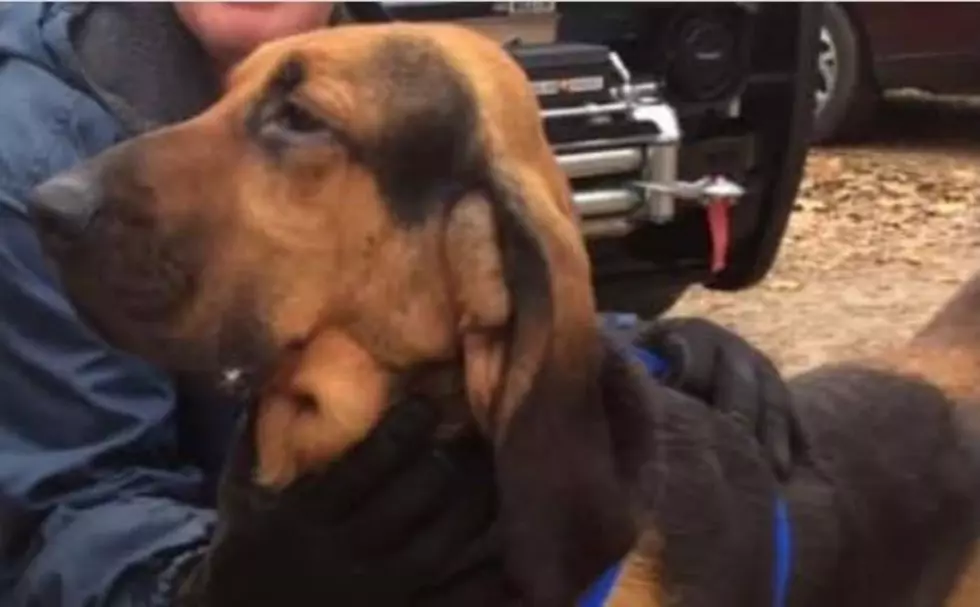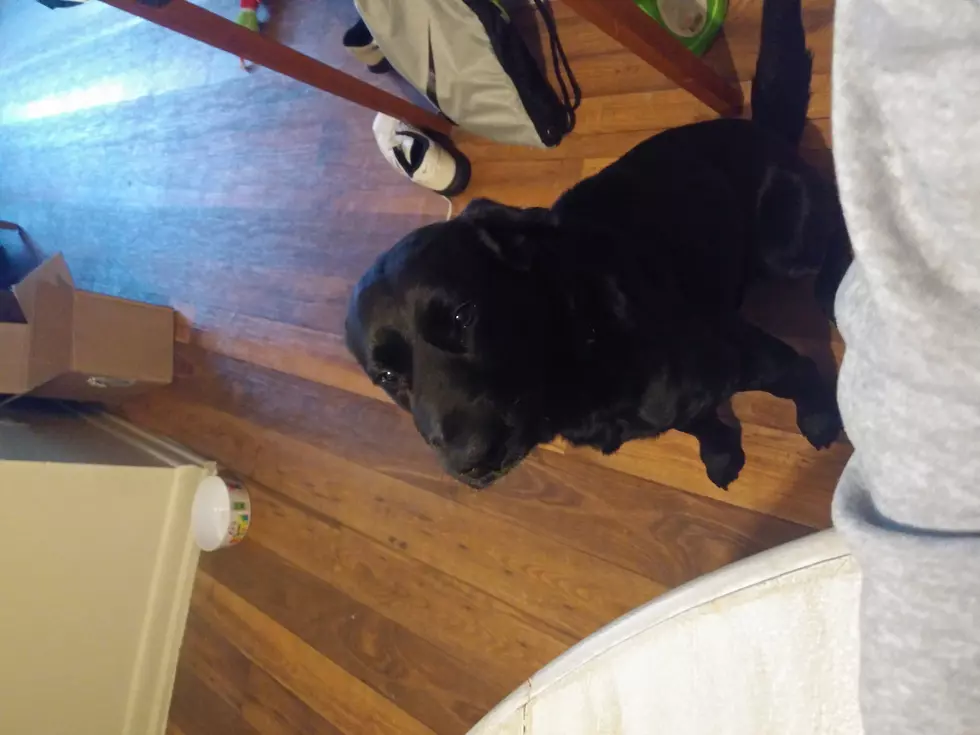
What Do I Do If I Find A Dog?
I always thought that I knew the answer to the question "What do I do if I find a dog?", but the staff at Guidry Animal Hospital gave me the steps to follow along with great pointers to help the process along.
The process of finding and returning a dog COULD be relatively easy IF things go as easily as they could. It COULD go like this:
- Find dog
- Call number on tag
- Return dog to owner.
In reality, it isn't always this easy. With the help of the staff at Guidry Animal Hospital in Carencro, we've put together a list of steps to take to help get a lost dog back to its owner, along with some steps to take to help safeguard your pet BEFORE it gets lost.
- (Photo by Pablo Blazquez Dominguez/Getty Images)
(Photo by Pablo Blazquez Dominguez/Getty Images) 1SAFETY FIRST, FOR YOU AND THE DOG
If you are trying to capture a dog that’s next to a street, your sudden movement toward it can actually cause it to run into the street. Stay back and call it to you. If you’re lucky enough to have food, try enticing the dog with that.
If you are driving, use caution: don’t slam on your brakes and possibly cause an accident in your attempt to save the animal from harm. (Don't get me wrong: there are dogs in this world that I love more than many people I have met, but as much as we love our furry four-legged friends, the safety of people must still come above that of the dog).
Dr. Guidry reminds us that even the nicest dog can bite due to fear of strangers and not knowing what the person intends to do with them after they’ve caught them. Dr. Guidry's staff has stories of injured dogs that have actually bitten their owners when they attempt to move it into the car to transport to the hospital (due to pain), so imagine what a scared/injured stray might do.
If you can not safely secure the animal, call animal control in your parish for assistance.
- Amazon.com/name tag
Amazon.com/name tag 2OKAY, I'VE SECURED THE DOG. NOW WHAT?
Once you've secured the dog, check for an ID on the collar. It will be in one of two forms: a personal ID tag, or a parish (county, city) vaccination tag.
Good owners will attach a tag with the dog's name, the owner's name and/or phone number and/or address.
One good reason to include the dog's name on the tag: when a dog hears its own name, it could provide a better sense of security, providing for less anxiety. Each vaccination tag, or rabies tag, will include a number that the issuing parish keeps on file. When you call the animal control unit in your parish, they will be able to cross-reference that number with the owner's information.
- Amazon.com/Pet Chip Scanner
Amazon.com/Pet Chip Scanner 3THE DOG HAS NO COLLAR. NOW WHAT?
Just because a dog does not have a collar doesn't necessarily mean that it is homeless. Many owners remove their dog's collar indoors to reduce noise (tags jingling during a good scratch or shake can be quite loud) and place the collar on the dog when it's time to go out.
If the dog you found has no collar, take it to the nearest veterinarian. Most vets now have a microchip scanner and can check for one at no charge to you.
The staff at Guidry Animal Hospital tell me that most of the strays that are brought in are not micro-chipped. Sometimes, they tell me, even if the dog has a chip, the owner has not registered the chip or kept the registration updated with the correct information.
Microchipping is a great, relatively low-cost way of ensuring that your pets have a good chance of being returned home, but: you must register the chip online after it is placed, and keep your address and phone number updated in the case of a move.
I asked Dr. Guidry about the fees for microchipping: $35 which, in my opinion, is a small price to pay for the extra comfort of knowing that someone will be able to identify your dog.
- Mario Tama, Getty Images
Mario Tama, Getty Images 4NO TAGS, NO CHIP: NOW WHAT?
If the dog has no tags and no chip, and you still want to try to find its owner (which you should), the next step is to find a place for the pet while you are searching.
If you are going to keep the pet at your home, be sure to keep it isolated from your other pets.
Dr. Guidry says that it is important to keep them separated from your pets for a few reasons:
- the dog you found may have a contagious disease/condition like internal or external parasites, kennel cough, parvovirus, etc.,
- the dog you found may not play well with others,
- your pets might feel the need to protect you or their own territory, which could end up in a fight between the animals.
Set up independent feeding area, play areas, sleeping areas.
Also, make certain that the dog can not escape its enclosure; just because your pet can't/doesn't, the dog you found might give it more effort!
- Carl Court/Getty Images
Carl Court/Getty Images 5GET THE WORD OUT
As quickly as possible, get the word out about the dog you found. Before posting to social media, check the various sites for posts that fit the description of the dog you found. Lost and Found Pets Acadiana is a great resource to utilize, as it is connected with our 7 radio stations, with thousands of followers.
If there have been no posts to social media, it's time to get the word out. Post to Facebook with some general details: when the dog was found, where the dog was found, etc. The staff at Guidry Animal Hospital advised us, though, to
leave off some major identifying factor (maybe a collar or a distinct marking in the fur) so you can be sure that the people responding are the true owners. Some breeds are in high demand and your posting may attract someone who wants the dog for ill intent! - Dr. Tal Guidry, Guidry Animal Hospital
If there are no immediate responses from social media, make a poster and hang it at or near the place where the dog was found. Also, flyers can be made and dropped off at area veterinary offices. At the very least, email a flyer to the veterinarians in the area. Most will print it out and display it.
- Photo by Bill Hinton/Getty Images
Photo by Bill Hinton/Getty Images 6OWNER FOUND: LET'S GET THIS DOG HOME!
If someone does claim the dog, and you are certain that they are the actual owners, meet up with the owner to drop off the dog. If the owner is someone in the neighborhood, or if it's someone you trust, all is good. If you are unsure about your safety during the meet-up, trust your instincts and 1) bring a friend and 2) meet up in a public area, or at your city's designated meet-up spot (some cities allow for Craigslist and eBay meet-ups in their municipal parking lots, protected by security and/or cameras).
More From Classic Rock 105.1








